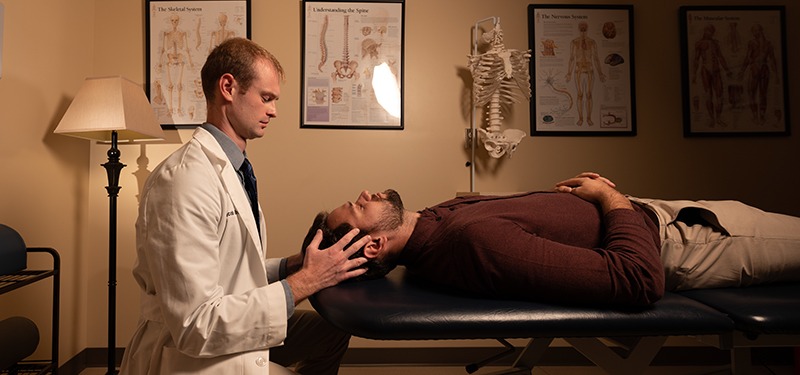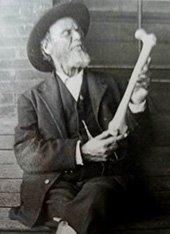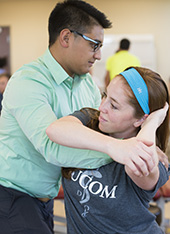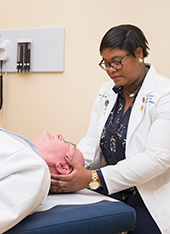
The DO Philosophy
There are two types of complete physicians in the United States: Doctors of Osteopathic Medicine (DO) and Doctors of Medicine (MD).
DOs are fully licensed physicians who practice in all areas of medicine. Emphasizing a whole-person approach to treatment and care, DOs are trained to listen and partner with their patients.
The History
 Osteopathic medicine was introduced in 1874 by Andrew Taylor Still, MD, DO. Dissatisfied with the practices and ineffectiveness of 19th-century medicine, Dr. Still turned to the study of human health to understand the process of disease.
Osteopathic medicine was introduced in 1874 by Andrew Taylor Still, MD, DO. Dissatisfied with the practices and ineffectiveness of 19th-century medicine, Dr. Still turned to the study of human health to understand the process of disease.
Ultimately, this process led him to a concept of medicine based on the ideas of wellness, the harmony of structure, and the functionality of the body. In his discoveries, Dr. Still identified that the normality of the musculoskeletal system was a key element of health while recognizing the God-given ability of the body to heal itself through proper nutrition and exercise.
Osteopathic Oath & AOA Code of Ethics
As a Liberty osteopathic medical student, the Osteopathic Oath will be recited during two annual symbolic public events; the White Coat Ceremony and the Hooding Ceremony. The White Coat Ceremony occurs the first semester of a first-year student-doctor and the Hooding Ceremony is held on the day of Commencement/Graduation.
LUCOM faculty and student-doctors also agree to follow the American Osteopathic Association (AOA’s) Code of Ethics.
LUCOM
At Liberty University College of Osteopathic Medicine (LUCOM), student-doctors will be trained using the most advanced medical technology available, incorporating the latest in scientific knowledge and techniques while being taught through with a philosophy that places the patient, rather than the disease, at the center of the approach to care. At the core of their education, student-doctors will be taught to incorporate biomedical science, the principles of medicine, surgery, obstetrics, psychology, and public health, with a special emphasis on wellness, preventative medicine, and the musculoskeletal system.
Student-Doctors who fulfill the requirements of the four-year curriculum and graduate from LUCOM as a DO will join one of the only two groups of physicians with unlimited licenses to practice medicine in all 50 states.
Unique Approach to Diagnosis and Treatment
 Culturally, Osteopathic Physicians offer a distinctive approach to medical care that concentrates on holistic and patient-centered treatment, while emphasizing wellness and the prevention of disease and disability. Such a commitment to the training of primary care/community-based physicians is a combination of a desire to reach underserved rural, minority, geriatric and indigent populations marks the osteopathic medical profession as distinctive in its service to patients.
Culturally, Osteopathic Physicians offer a distinctive approach to medical care that concentrates on holistic and patient-centered treatment, while emphasizing wellness and the prevention of disease and disability. Such a commitment to the training of primary care/community-based physicians is a combination of a desire to reach underserved rural, minority, geriatric and indigent populations marks the osteopathic medical profession as distinctive in its service to patients.
DO physicians often incorporate osteopathic manipulative treatment (OMT) into their practice, which allows for palpatory examination and structural diagnosis of abnormalities found in the neuromuscular skeletal system and the corresponding medical systems abnormalities related to the changes. This process often identifies the presence of functional impairments to health and wellbeing, as well as, provides the osteopathic physician with the opportunity to utilize manipulative treatment to correct identified defects and improve the patient’s health and well-being.
Education and Training
DOs, like MDs, complete four years of medical education. At the conclusion, they are symbolically hooded indicating their acceptance into the medical profession. After medical school, DOs, like MDs, obtain Graduate Medical Education (GME) through residencies, often called internships. This training most often lasts three to eight years and prepares the graduate/doctor to practice a specialty, such as pediatrics, women’s health, family medicine, surgery, obstetrics, etc.
DOs and MDs must pass comparable examinations to obtain state licenses and practice in fully accredited and licensed health care facilities.
Patient Health
 In an ideal “doctor-patient” relationship, Osteopathic physicians serve as patient advocates and educators, guiding each patient toward health through appropriate utilization of the health care system, encouraging personal involvement and responsibility for the individual’s health and the concentration on the health and desires of the patient as much as the treatment of the disease.
In an ideal “doctor-patient” relationship, Osteopathic physicians serve as patient advocates and educators, guiding each patient toward health through appropriate utilization of the health care system, encouraging personal involvement and responsibility for the individual’s health and the concentration on the health and desires of the patient as much as the treatment of the disease.
LUCOM is committed to providing an excellent medical education that will prepare its graduates to enter any medical discipline or specialty upon graduation. Its mission and curriculum are designed to encourage primary and community-based physicians – our goal is to place graduates in community-based medical practices within the state and region annually.